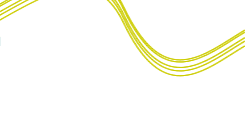

|
|
 |
|||
|
|
||||
 |
SELECTED BIBLIOGRAPHY
BOOKS
Bruer, John T., Schools for Thought, A Science of Learning in the Classroom.
Cambridge: A Bradford Book, The MIT Press, 1993.
American Association for the Advancement of Science, Project 2061, Blueprints
for Reform/Science, Mathematics, and Technology Education. New York: Oxford University Press, 1998.
Science/For All Americans. New York: Oxford University
Press, 1990.
Benchmarks for Science Literacy. Washington: Oxford University
Press, 1993.
Berger, Joseph, The Young Scientists/America's Future and the Winning of the
Westinghouse, Reading, MA: Addison-Wesley Publishing Company, 1994.
Cuban, Larry, Teachers and Machines/The Classroom Use of Technology Since
1920. New York: Teachers College Press, Columbia University, 1986.
Fisher, Charles and David C. Dwyer, Keith Yocam, Editors, Education &
Technology/Reflections on Computing in Classrooms. San Francisco: Jossey-Bass and Apple Press Publications, 1996.
Goldberg, Lazer, Teaching Science to Children, Mineola, NY: Dover Publications,
Inc., 1997.
Gooden, Andrea R., Computers in the Classroom/How Teachers and Students are
Using Technology to Transform Learning, San Francisco: Jossey-Bass and Apple Press Publication, 1996.
Hamilton ADA Solutions, Education K-12/Laboratory Furniture & Equipment —
Project Planning Guide, Twin Rivers, WI: Fisher Hamilton Inc., 1997.
National Research Council, National Science Education Standards. Washington:
National Academy Press, 1996.
National Science Resources Center, National Academy of Sciences, Smithsonian
Institution, Science for All Children/A Guide to Improving Elementary Science Education in Your School District. Washington: National Academy Press, 1997.
National Science Teachers Association, High School Edition, Pathways to the
Science Standards/Guidelines for Moving the Vision into Practice. Arlington, VA: NSTA, 1997.
Raizen, Senta A., Peter Sellwood, Ronald D. Todd, and Margaret Vickers, The
National Center for Improving Science Education, Technology Education in the Classroom/Understanding the Designed World. San Francisco: Jossey-Bass Publishers, 1995.
BOOKS IN A SERIES
Banks, Frank, ed. Teaching Technology. Part of PGCE Series (Post Graduate.
Certificate of Education). London: The Open University, 1994.
Bybee, Rodger W. Reforming Science Education/Social Perspectives & Personal
Reflections. Way of Knowing in Science Series, ed. Richard Du¾ schl. New York: Teachers College Press, Columbia University,1993.
Cantor, Jeffrey A. Experiential Learning in Higher Education. ASHE-ERIC Higher
Education Report #7. Washington: The George Washington University, 1995.
Kerr, Stephen T., ed. "Technology and the Future of Schooling". Ninety-Fifth
Yearbook of the National Society for the Study of Education, Part II. Chicago: University of Chicago Press, 1996.
Levinson, Ralph, ed. Teaching Science. Part of PGCE Series (Post Graduate
Certificate of Education). London: The Open University, 1994.
Sutherland, Tracey E. and Charles C. Bonwell ed. Using Active Learning in College
Classes: a Range of Options for Faculty. Number 67/New Directions for Teaching and Learning. San Francisco: Jossey-Bass Publishers, Fall 1996.
Travis, Jon E. Models for Improving College Teaching/A Faculty Resource. ASHE-
ERIC Higher Education Report #6. Washington: The George Washington University, 1995.
Van Dusen, Gerald C. The Virtual Campus/Technology and Reform in Higher
Education. Volume 25, Number 5. Washington: The George Washington University, 1997.
Wilderson, LuAnn, and Wim H. Gijselaers, ed. Bringing Problem-Based Learning
to Higher Education: Theory and Practice. Number 68/New Directions for Teaching and Learning. San Francisco: Jossey-Bass Publishers, Winter 1996.
Yager , Robert E., ed. Science/Technology/Society as Reform in Science Education.
SUNY Series in Higher Education. Albany: State University of New York Press ,1996.
ELECTRONIC DOCUMENTSNational Fire Protection Association. Occupancy/Life Safety Code 101.
San Marcos, TX: SWT/Southwest Texas State University web site. Safety in Science Education. http://bluebonnet.bio.swt.edu/Safety/NFPA%20Occupancy.html.
West, Dr. Sandra S. and Carolyn J. Peshthy. Science Lab Safety Survey.
San Marcos, TX: SWT/Southwest Texas State University web site. Safety in Science Education. http://bluebonnet.bio.swt.edu/Safety/NFPA%20Survey.html.
West, Dr. Sandra S. Disabled Students/Texas Accessibility Standards. Based upon
IDEA-Accessibility & Individuals w/Disabilities in Education Act; The Americans w/Disabilities Act (ADA). San Marcos, TX: SWT/Southwest Texas State University web site. Safety in Science Education. http://bluebonnet.bio.swt.edu/Safety/NFPA%20Survey.html
Overcrowding & Liability/Class size is a Safety Issue!
San Marcos, TX: SWT/Southwest Texas State University web site. Safety in Science Education. http://bluebonnet.bio.swt.edu/Safety/Overcrowding.html.
Science Facilities/Lab Design. San Marcos, TX:
SWT/Southwest Texas State University web site. Safety in Science Education. http://bluebonnet.bio.swt.edu/Safety/Lab%20Design.html
U.S. Senate. Bill 1. Texas Education Code. Chapter 61 - School Districts.
Subchapter H - School Facilities Standards. San Marcos, TX: SWT/Southwest Texas State University web site. Safety in Science Education. http://bluebonnet.bio.swt.edu/Safety/Facilities.html.
REPORTS
National Conference on Student & Scientist Partnerships. Cambridge: TERC and
American Association for the Advancement of Science. The Liberal Art of
EWA-Educational Writers of America. Barriers and Breakthroughs/Technology in
Urban Schools. Washington, 1999.
Rietz, Dr. Richard R. University Research & Teaching Laboratories. Chicago: A
presentation for the Tradeline Seminar, Best and Newest Ideas from Recent Laboratory Building Projects - Part IV, 1992.